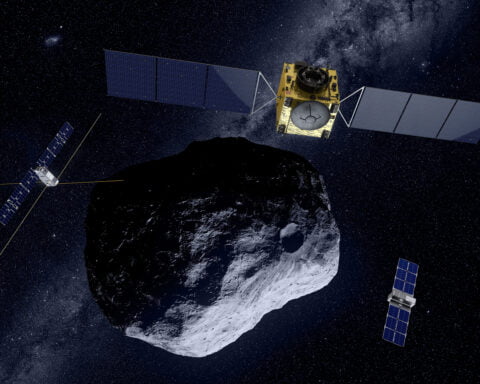Dr Aschbacher was previously ESA Director of Earth Observation Programmes and Head of ESRIN, ESA’s centre for Earth Observation near Rome.
Born in Austria, Josef Aschbacher studied at the University of Innsbruck, graduating with a Master’s and a Doctoral degree in natural sciences. He became a research scientist at the university’s Institute of Meteorology and Geophysics from 1985 to 1989.
He began his career in ESA in 1990 as a Young Graduate at ESRIN. From 1991 to 1993 he was seconded as ESA Representative to Southeast Asia to the Asian Institute of Technology in Bangkok, Thailand, where he initiated major cooperation programmes between the EC, ESA and Southeast Asia.
From 1994 to 2001 he worked at the European Commission Joint Research Centre in Ispra, Italy, where he was the Scientific Assistant to the Director of the Space Applications Institute, being responsible for scientific strategy and resource allocation. He returned to ESA headquarters, in Paris, in 2001 as Programme Coordinator, where he was primarily responsible for advancing Copernicus within ESA.
In 2006 he became Head of the Copernicus Space Office, located at ESRIN near Rome, Italy, where he led all activities for Copernicus within the agency and with external partners, in particular the European Commission.
In 2014, he was promoted to Head of Programme Planning and Coordination at ESRIN, where he was responsible for planning ESA’s Earth Observation programmes and for formulating and implementing programmatic and strategic decisions across the Directorate.
In 2016, Josef Aschbacher was appointed as Director of Earth Observation Programmes, ESA’s largest Directorate, and as Head of ESRIN, ESA’s centre for Earth observation. Under his leadership, Europe developed the world’s leading Earth observation programme, which includes all Sentinel missions as part of the EU-led Copernicus programme, all meteorological missions for Eumetsat and the Earth Explorer, Scout and phi-sat missions developed for ESA Member States. In 2020, a total of 40 satellites were under development and ESA disseminated the world’s largest Earth observation data volumes.






